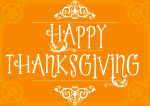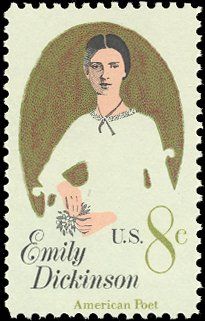Two great scientists who studied the stars were born this month: John Herschel (1792–1871) and Albert Einstein (1879–1955). In their honor, in a contrariwise manner, our homeschool poem-of-the-week for the second week of March is the science-skeptical “When I Heard the Learn’d Astronomer” by the great American poet Walt Whitman (1819–1892):
When I Heard the Learn’d Astronomer
When I heard the learn’d astronomer,
When the proofs, the figures, were ranged in columns before me,
When I was shown the charts and diagrams, to add, divide, and measure them,
When I sitting heard the astronomer where he lectured with much applause
in the lecture-room,
How soon unaccountable I became tired and sick,
Till rising and gliding out I wander’d off by myself,
In the mystical moist night-air, and from time to time,
Look’d up in perfect silence at the stars.
Artists and scientists have not always gotten along through history — and what a wonderful subject that is for open-ended discussion between you and your homeschool students. To be frankly critical, I think artists have failed to appreciate scientists more often than the reverse. (For a second poetical example, see Edgar Allan Poe’s sonnet “To Science.”) Do you have an art-loving student with no interest in science? Or a science-loving student with no interest in art? Or one of each? And which are you?
![[Walt Whitman Stamp]](https://riverhouses.org/wp-content/uploads/2019/03/whitman-stamp-1940-276x300.jpg) Putting on our artist-hats for a moment and turning to the details of Whitman’s poem, we’ll see that it has very little metrical structure. Whitman’s preferred style was “free verse,” very avant-garde in his day, and counting lines and syllables in his poems doesn’t usually reveal much. But Whitman’s free verse does regularly employ specific artful literary techniques that your students can learn to recognize.
Putting on our artist-hats for a moment and turning to the details of Whitman’s poem, we’ll see that it has very little metrical structure. Whitman’s preferred style was “free verse,” very avant-garde in his day, and counting lines and syllables in his poems doesn’t usually reveal much. But Whitman’s free verse does regularly employ specific artful literary techniques that your students can learn to recognize.
One of Whitman’s favorite poetical devices is anaphora — a grand college-level literary term that refers to the repetition of a word or phrase at the beginning of successive clauses: When I heard … When the proofs … When I was shown … When I sitting…. (See the first section of Whitman’s masterpiece “Out of the Cradle Endlessly Rocking” for many more beautiful examples of anaphora.)
Anaphora produces a weighty and majestic feel in poetry and prose. It’s a common literary device in the Bible, and Whitman’s poetic cadences owe much to the many anaphoric passages that occur all through the King James Version: Though I speak with the tongues of men and of angels … And though I have the gift of prophecy … and though I have all faith … And though I bestow all my goods … and though I give my body to be burned, and have not charity, it profiteth me nothing (1 Corinthians 13:1–3).
Contra Whitman, I think both science and art profiteth us much, and I hope you agree. Why not spend a few homeschool minutes this week remembering those who, however contrarily, have advanced both fields of human endeavor.
What wonderful words and poetical productions will you and your students be examining in your homeschool this Leo Term? 😊
❡ Iambics march from short to long: I said above that there isn’t much metrical regularity in this poem, but in fact there’s one notable exception to that claim. Did you spot it? Or better yet, did you hear it on reading the poem aloud? The very last line is a precise line of iambic pentameter: Look’d up in perfect silence at the stars. That deviation from free verse wraps the poem up with a rhythmic flourish and was surely intentional artistry on Whitman’s part. The learn’d astronomer may have done all the talking, but the poet got in the last artistic word. ✨
❡ This is a printable lesson: Down at the bottom of this post you’ll find a custom “Print” button that will let you create a neat and easy-to-read copy of this little lesson, and it will even let you resize or delete elements that you may not want or need (such as images or footnotes). Give it a try today! 🖨
❡ Literary lives: The website of the Poetry Foundation includes biographical notes and examples of the work of many important poets (including Walt Whitman) that are suitable for high school students and homeschool teachers. ✒️
❡ Here, said the year: This post is one of our regular homeschool poems-of-the-week. Print your own River Houses Poetry Calendar to follow along with us as we visit fifty of our favorite friends over the course of the year, and add your name to our River Houses mailing list to get posts like these delivered right to your mailbox every week. 📫
❡ Homeschool calendars: We have a whole collection of free, printable, educational homeschool calendars and planners available on our main River Houses calendar page. They will help you create a light and easy structure for your homeschool year. Give them a try today! 🗓
❡ Support our work: If you enjoy our educational materials, please support us by starting your regular Amazon shopping from our very own homeschool teaching supplies page. When you click through from our page, any purchase you make earns us a small commission at no extra cost to you. Thank you for helping us to keep going and growing! 🛒
❡ Join us! The aim of the River Houses project is to create a network of friendly local homeschool support groups — local chapters that we call “Houses.” Our first at-large chapter, Headwaters House, is now forming and is open to homeschoolers everywhere. Find out how to become one of our founding members on the Headwaters House membership page. 🏡




